👁️ Are you watching? 👁️
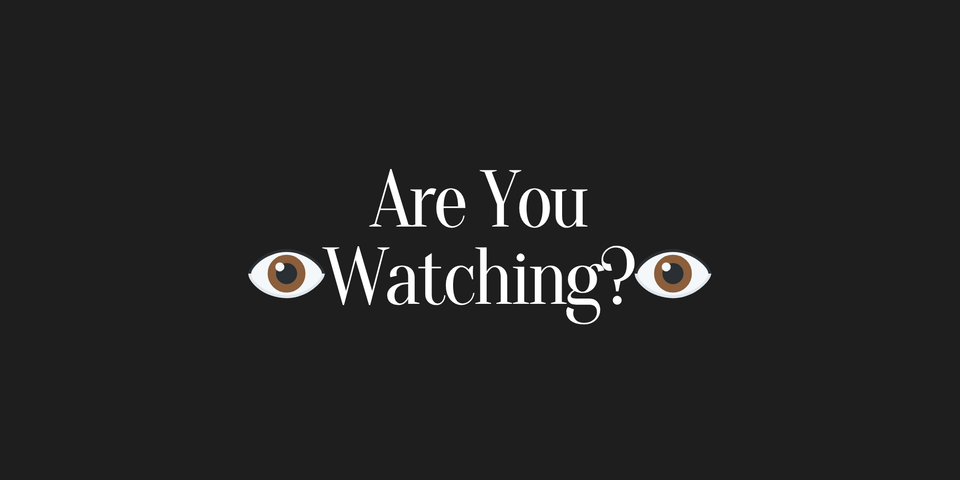
everywhere, anywhere - someone is always watching
When did we become so desensitized to surveillance?
Every person, company, and institution has the technological capabilities and is most certainly - ACTIVELY SURVEILLING YOU. Truth be told, it would be almost impossible to avoid modern surveillance entirely.
Imagine only having an analog phone. Or no bank account. Or trying to avoid every CCTV camera when you go outside?
Sounds hard eh? That's by design.
These modern conveniences come with a cost: to collect, analyze, and exchange our data as a commodity.
Did I actually read the privacy policy and terms & conditions before clicking that checkbox? Probably not.
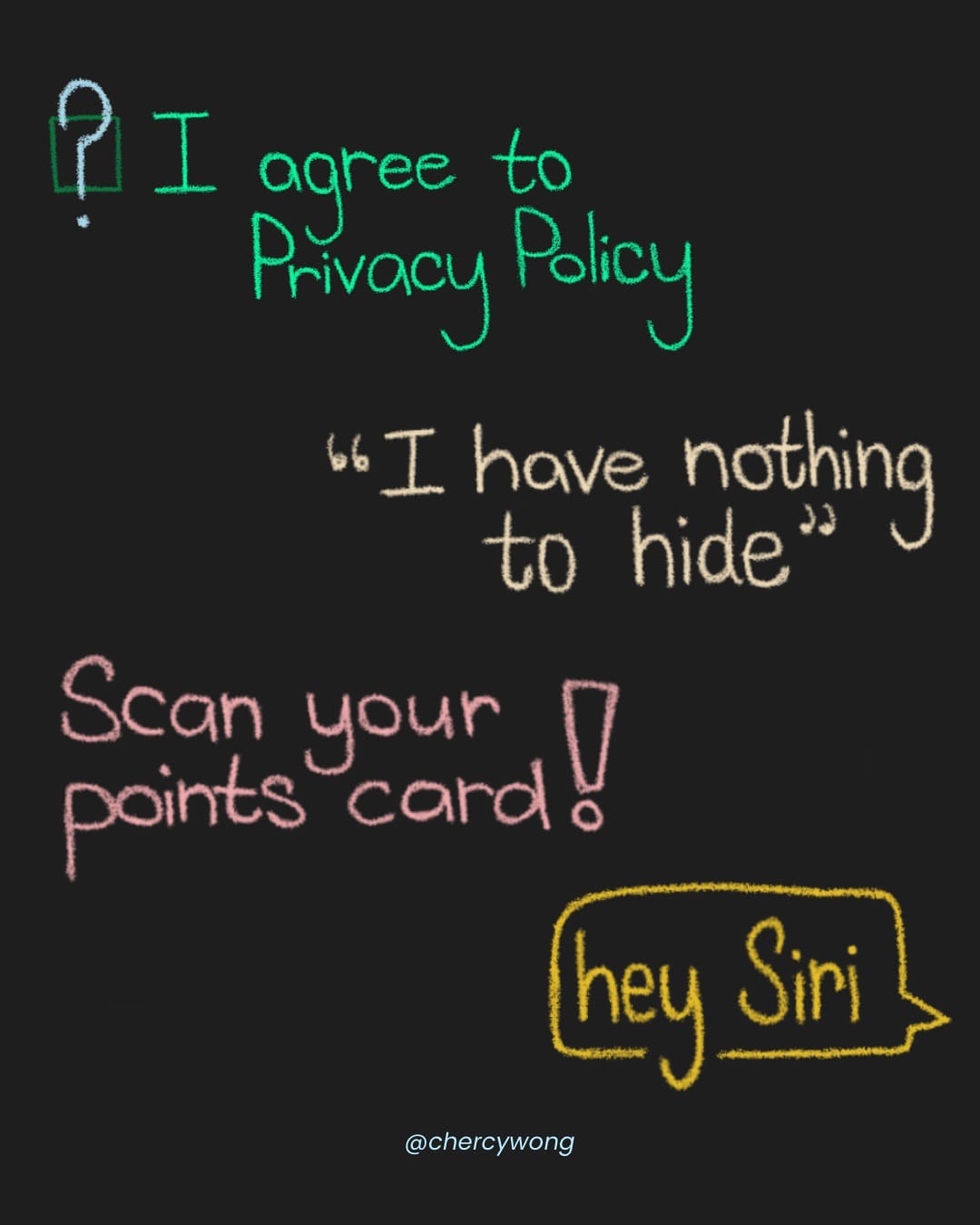
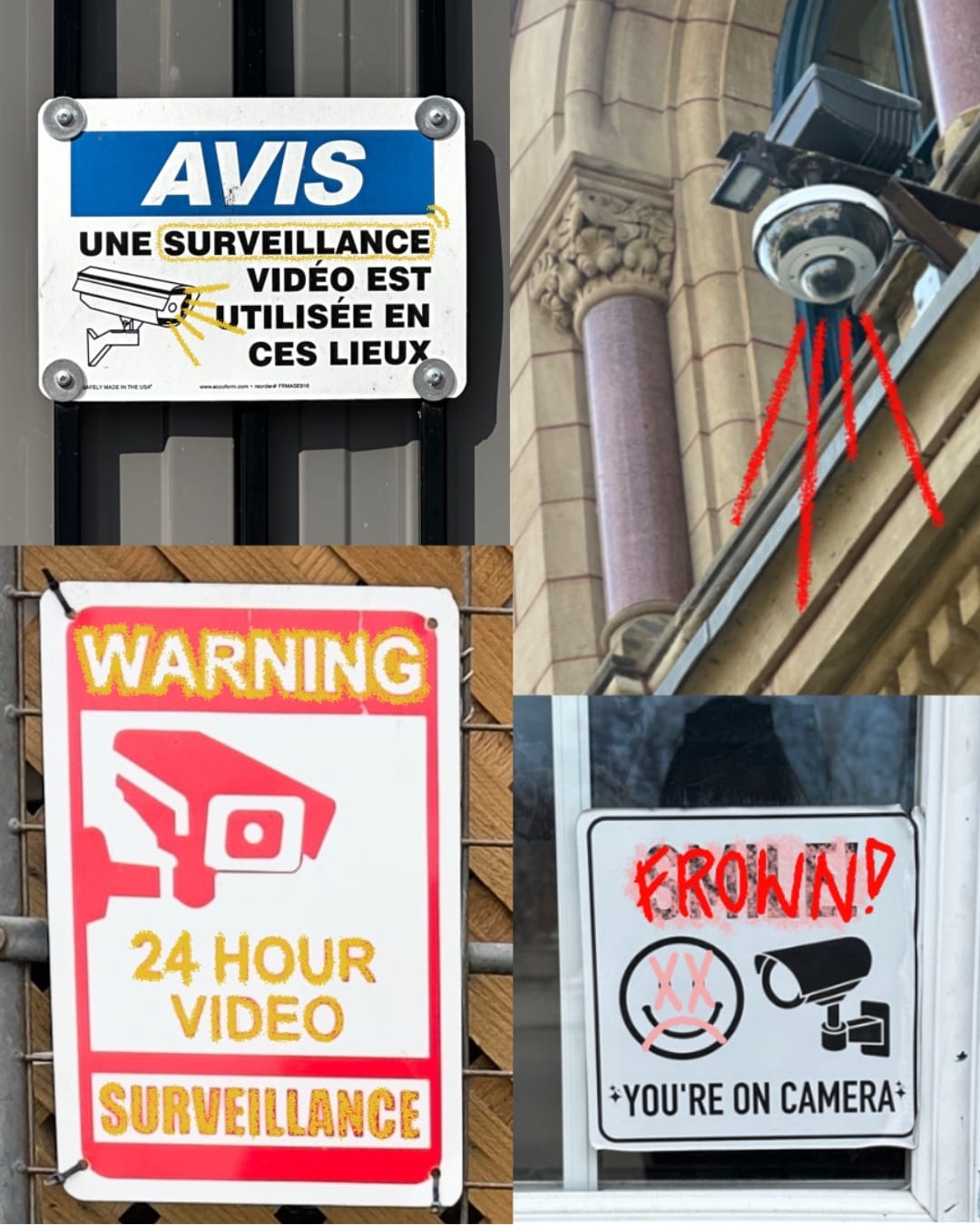
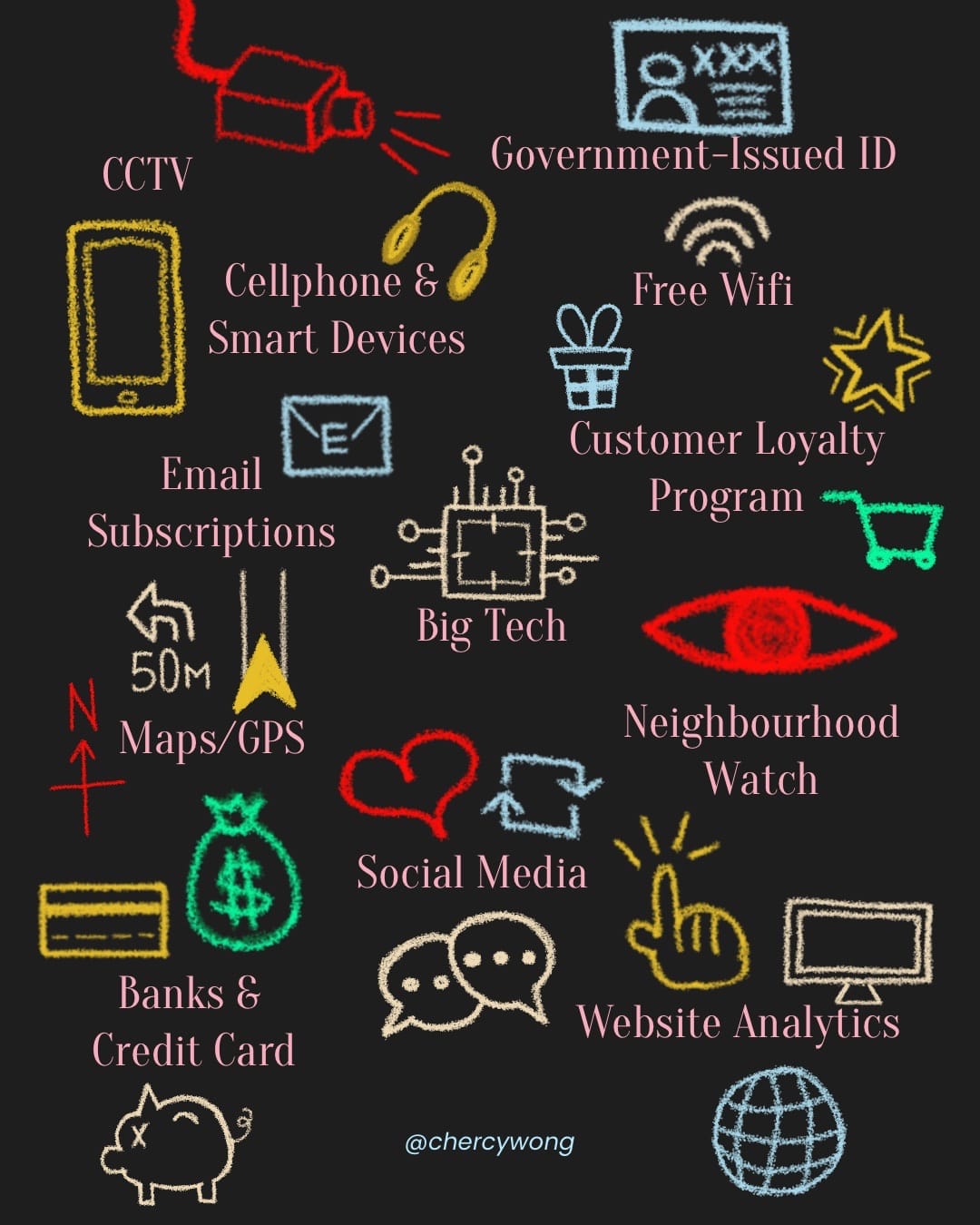
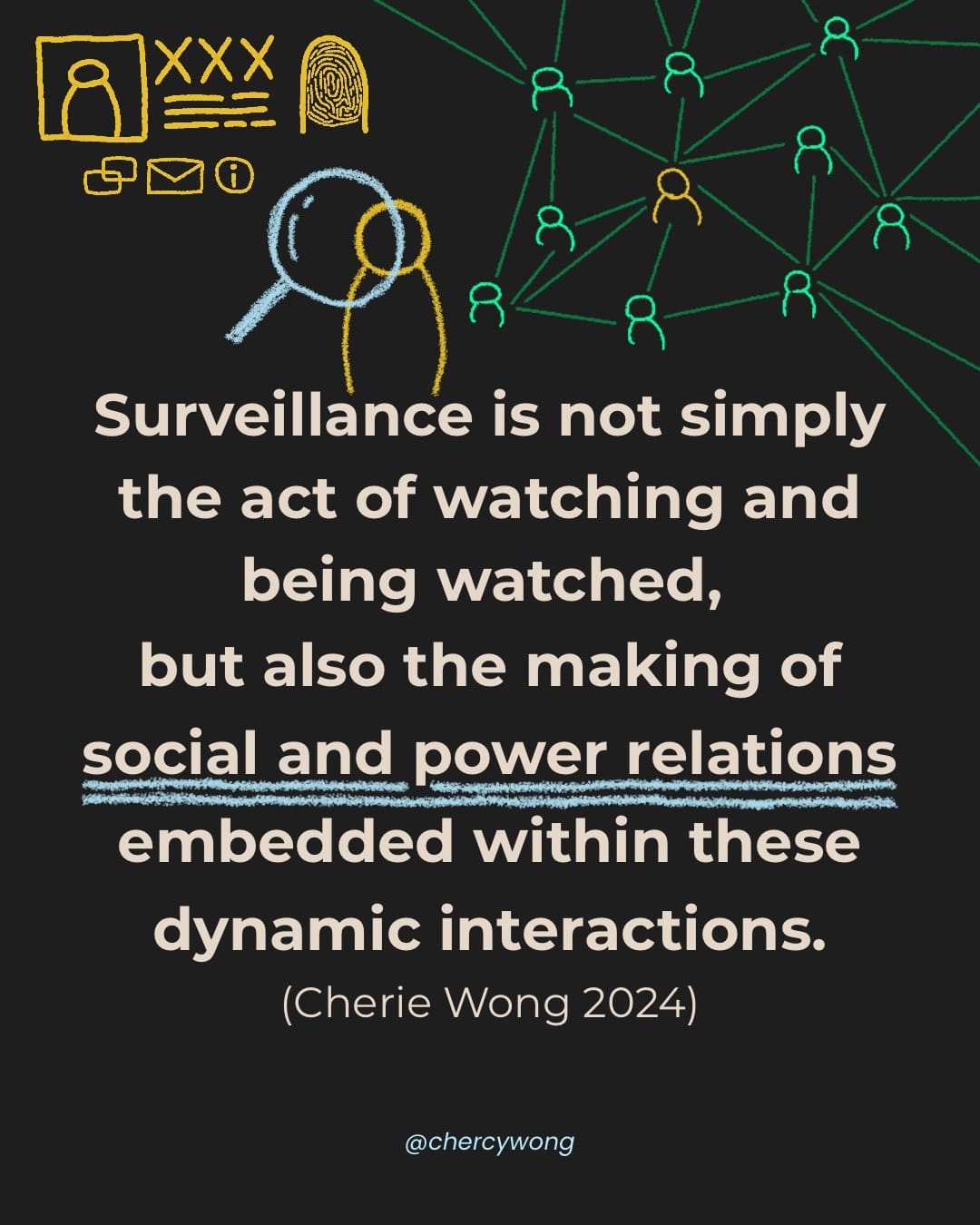
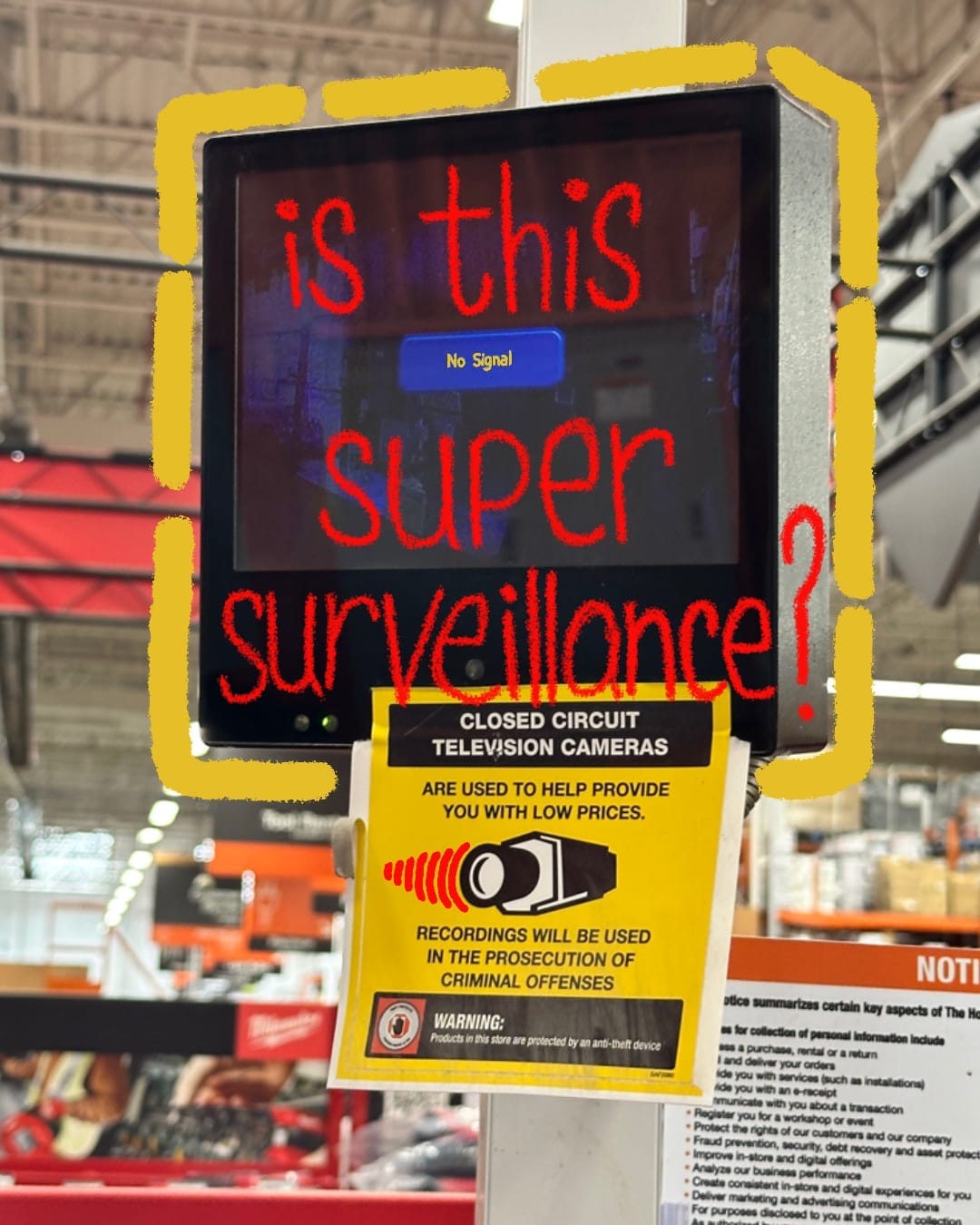
The virtual assistant is always listening for... "hey [alexa/meta/xiao ai]"
Surveillance as a subject-matter fascinated me as a young student. Growing up with family stories about the Cultural Revolution and Hong Kong's passive political suppression, I learned to navigate the social and power dynamics of surveillance before I understood these sociological concepts. I was taught to avoid speaking about politics, that the walls have ears, and that ANYONE could report you.
Today's technologically driven surveillance society is the stuff of nightmares.
With ease and minimal resources, one can trace their target's digital footprint. All it takes is a phone with a camera, microphone, and internet access.
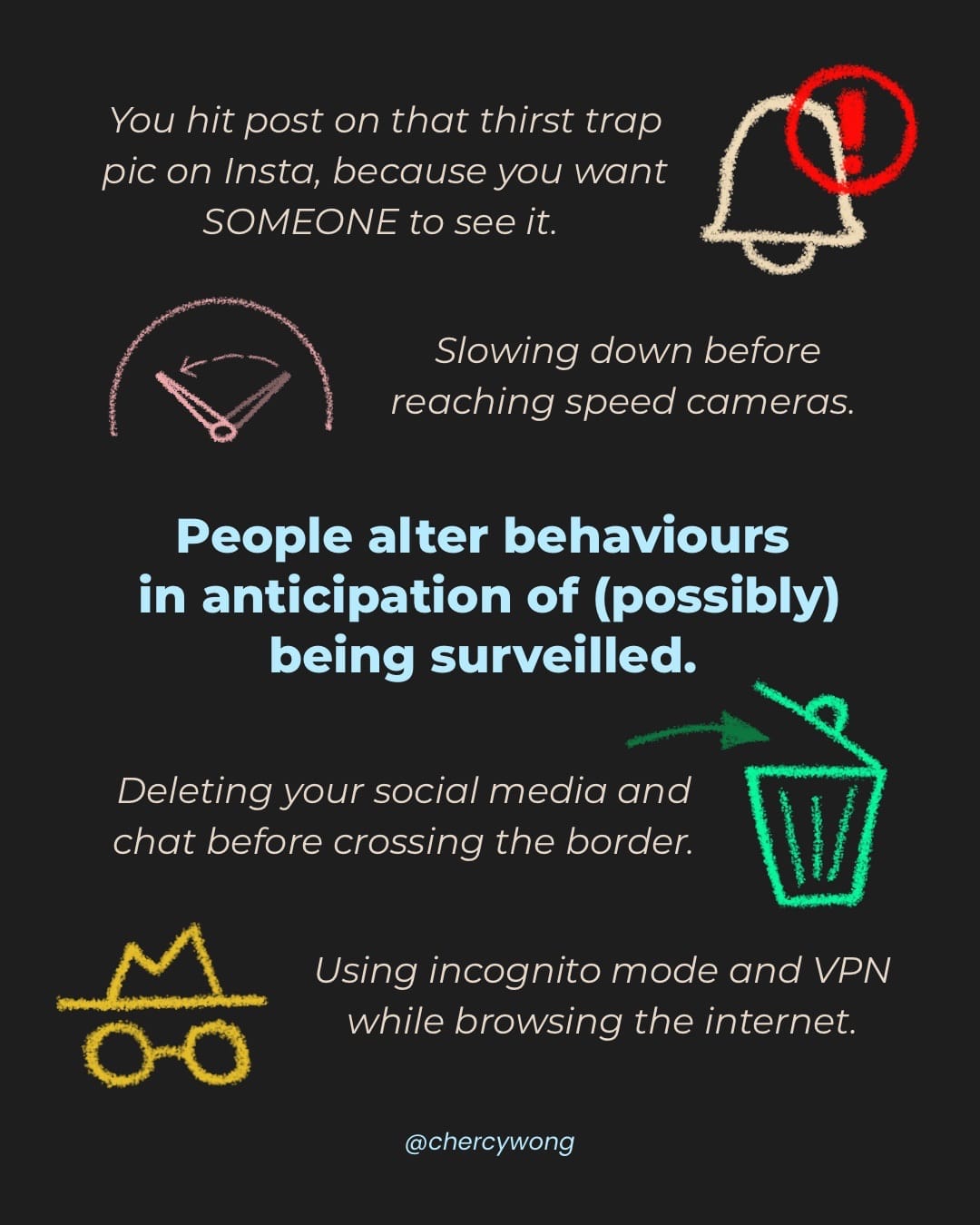
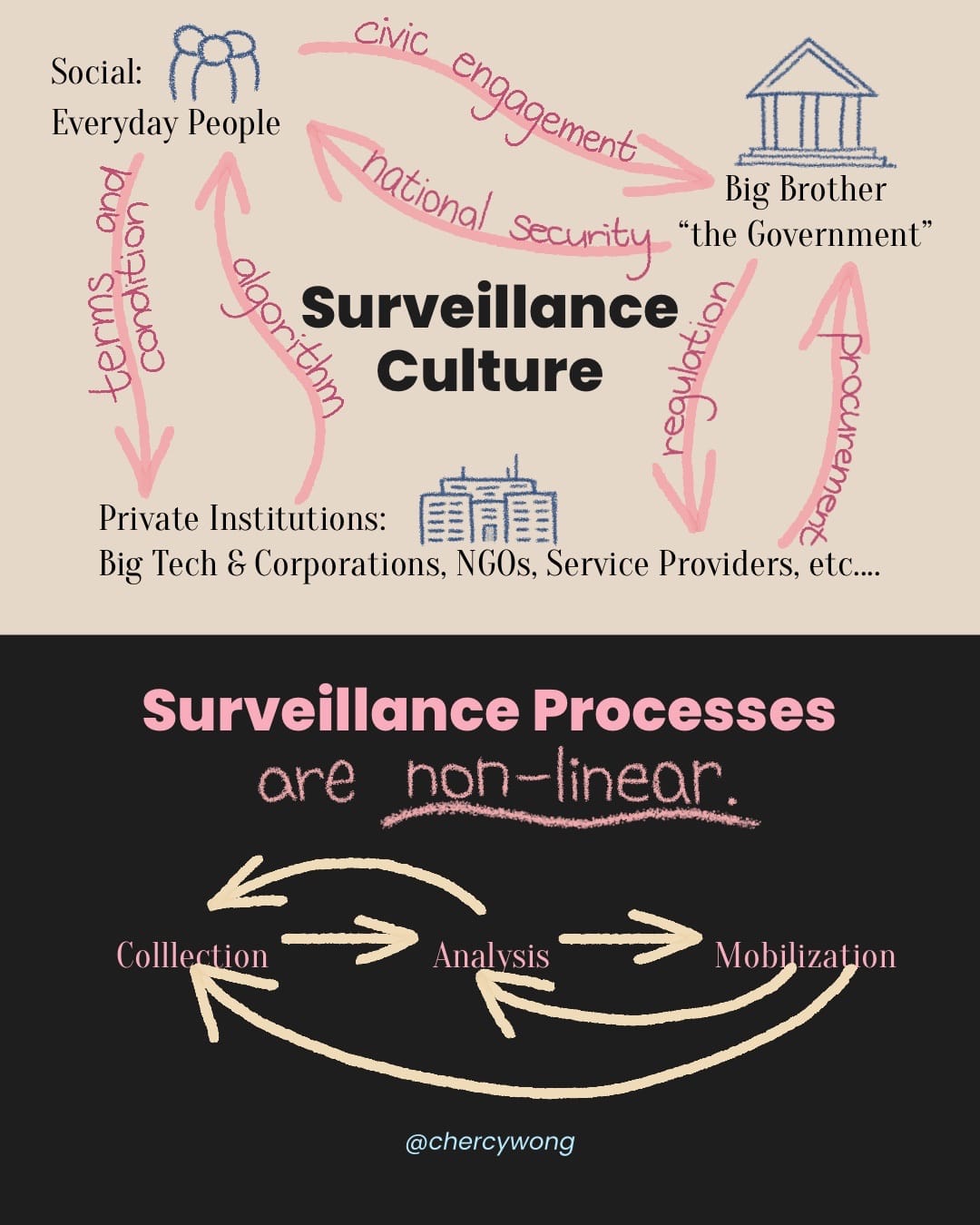
Let's explore a few case studies 📖
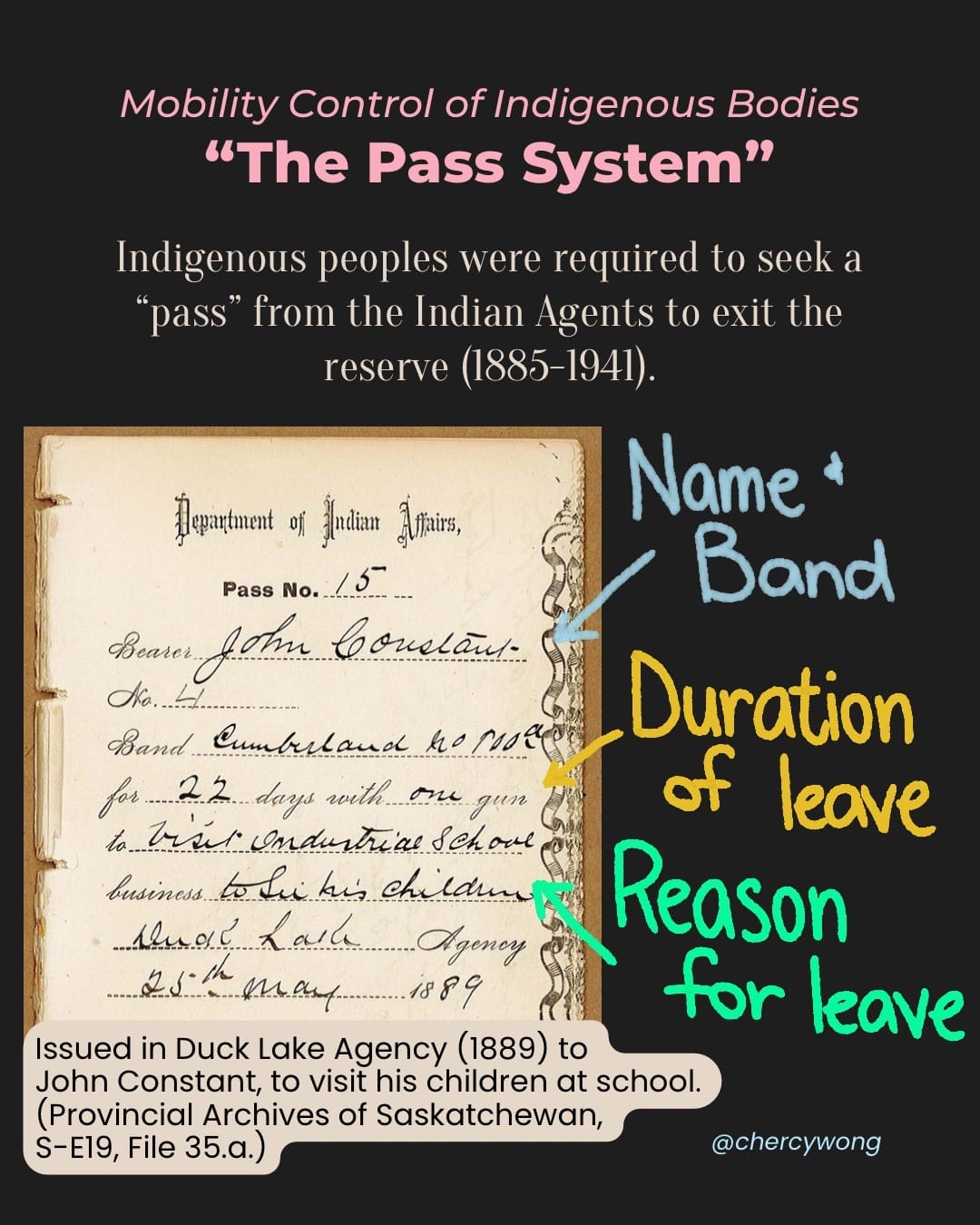

The Pass System was used to control the mobility of Indigenous peoples living in reserves. Indian Agents collect personal data: name, Band, destination, duration of leave, and reason for leaving. Indian Agents routinely reject pass applications: denied parents from visiting their children at forced assimilation/residential schools, separated families across reserves, and prevented large groups of Indigenous peoples from gathering in white Canada.
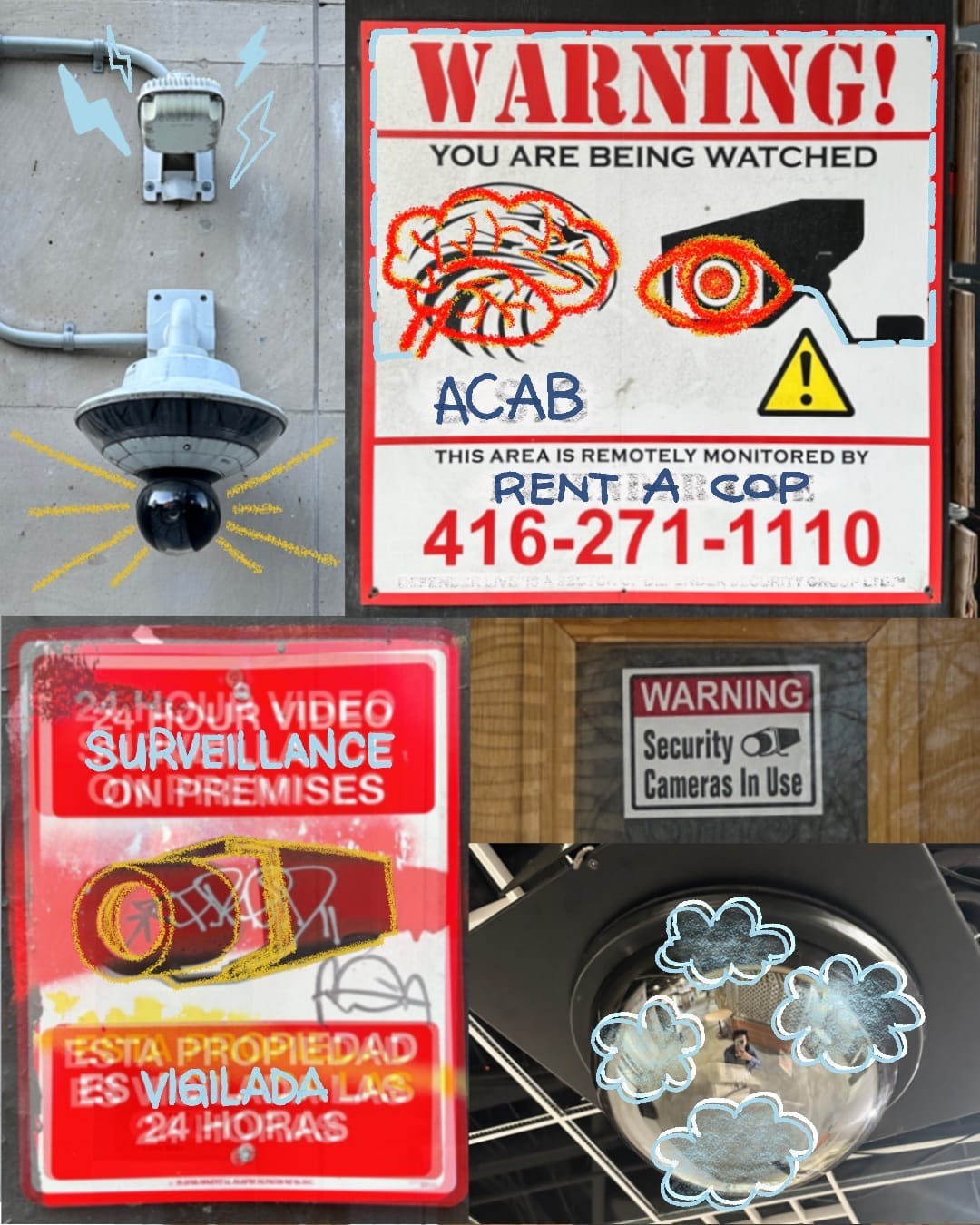
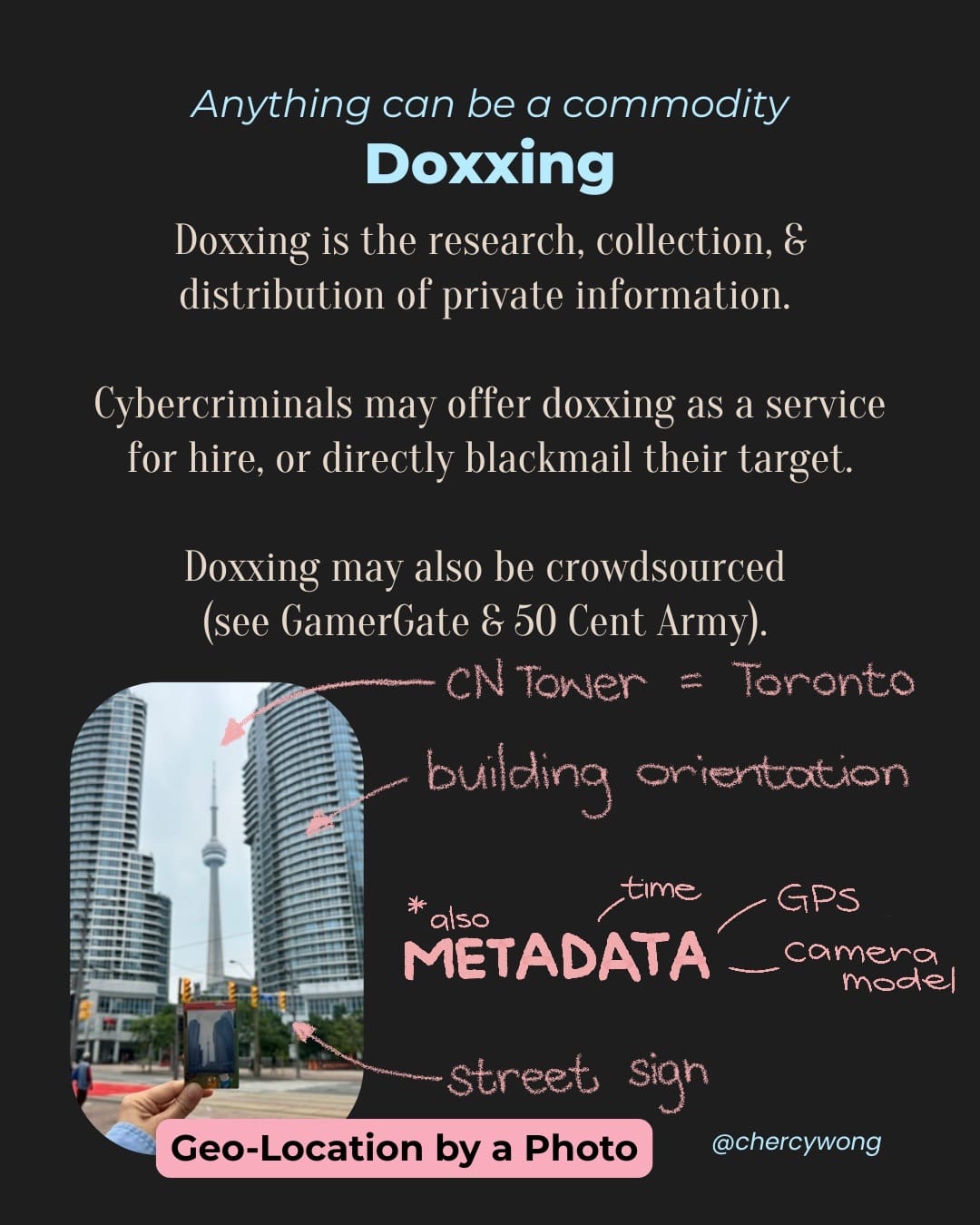
Doxxing is commonly used as a direct action tactic, used to leverage power and coerce the target into compliance. Doxxing is a neutral tactic: Activists may doxx dangerous individuals to protect communities. Bigots may doxx people to harass and threaten them. Cybercriminals may doxx people as a service for hire or for blackmailing.
We could have a philosophical conversation around doxxing, but this is neither the time or place for it...
Content Warning:
GBV/ Sexual Abuse/ Voyeurism/ Underage Children

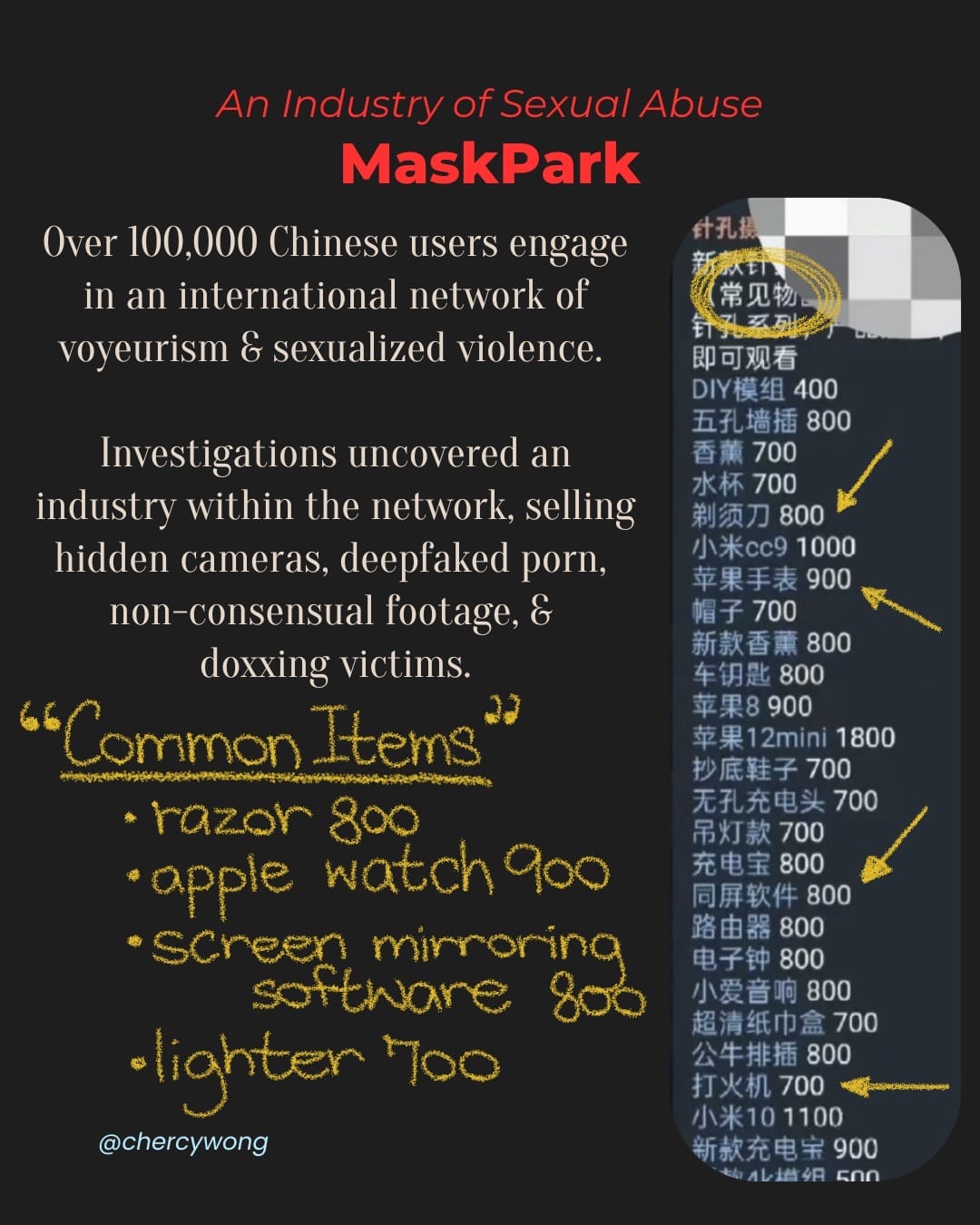
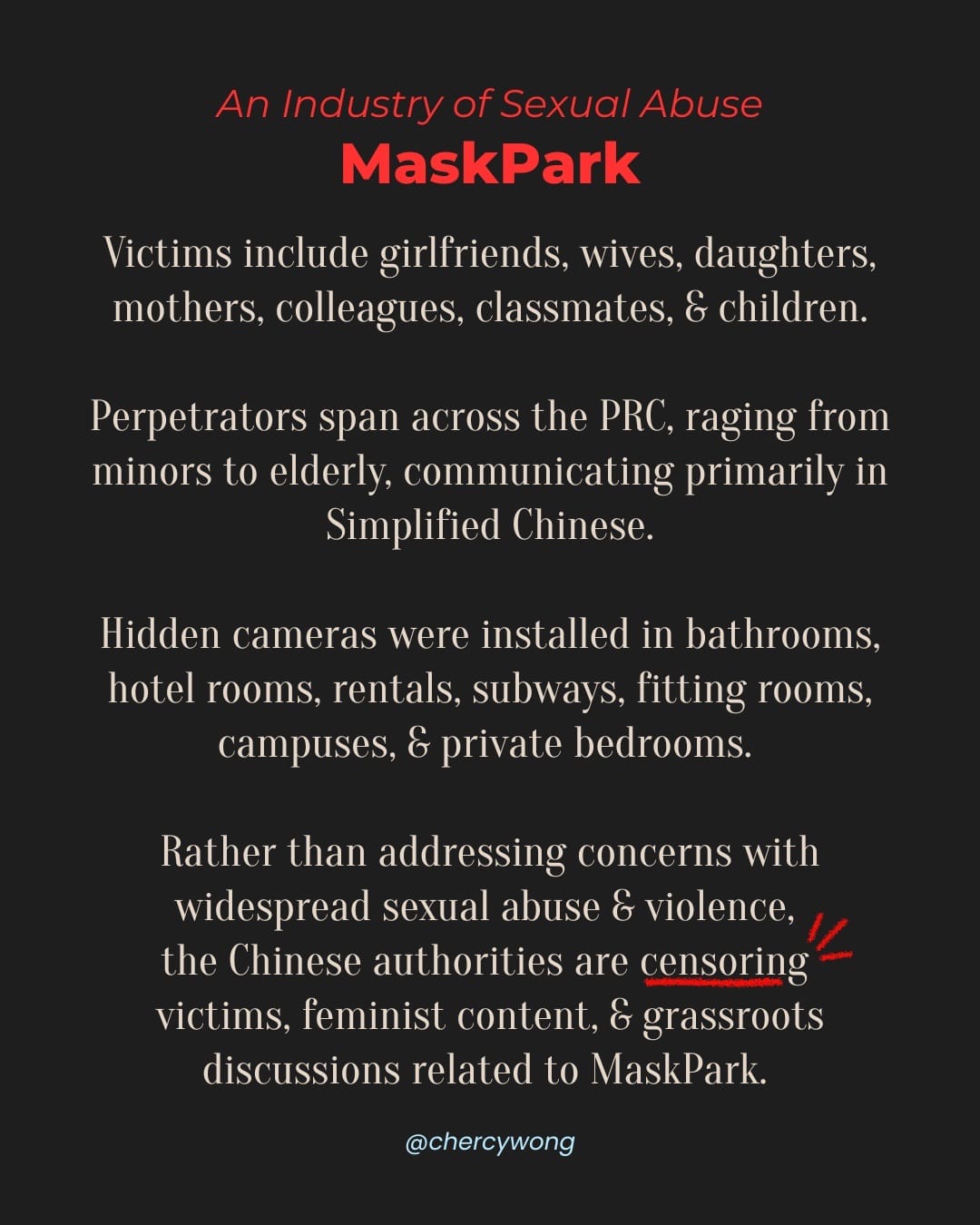
I wish I have the energy to unpack the MaskPark incident in depth. Fucking hell, I AM TIRED.
I should not have to explain why non-consensual filming of women and girls in intimate, explicit and sexual situations is bad. It is fucking horrifying that these 100,000 men were entitled to the bodies of women and girls.
It is fucking awful that the Chinese censorship apparatus mobilized to silence victims, survivors, feminist commentators, and grassroots discussions. Even though the censorship apparatus demonstrated capabilities to take down and erase digital content, but removing these sexually exploitative footage and networks is not the censors' priority.
Women and girls' safety and dignity are not the priority. Fuckin eh.
Shoutout to China Digital Times, a bilingual independent media organization providing uncensored news and content from China. I could not have written about MaskPark without their journalistic coverage and archive work!
Thank you CDT!

Surveillance is embedded in our daily lives.
Every click, swipe, and tap generates digital footprint that can be tracked, analyzed, manipulated, and mobilized. Today’s technological advancements and convenience comes at a cost: our personal information becomes a resource to be exploited and monetized.
By understanding how surveillance culture operates, we can take control of our physical and digital presence, make informed decisions, and protect ourselves. Knowledge is the first step toward reclaiming privacy in a world that’s always watching.
📝 Reading List 📝
Surveillance from 🍁 perspectives
Andrew Crosby and Jeffrey Monaghan. (2018). “Policing Indigenous Movements: Dissent and the Security State.” Fernwood Publishing. https://fernwoodpublishing.ca/book/policing-indigenous-movements
David Lyon. (2018). “The Culture of Surveillance.” Polity Press.
David Lyon. (2025). “Surveillance: A Very Short Introduction by David Lyon.” Youtube. https://www.youtube.com/watch?v=0WtfN3dRTfI
Classic Surveillance Studies
Kevin D. Haggerty, and Richard V. Ericson. (2000). “The Surveillant Assemblage.” The British Journal of Sociology 51(4):605–22. https://doi.org/10.1080/00071310020015280
Michel Foucault. (2008). “Panopticism.” Discipline & Punish: The Birth of the Prison.
Pramod K. Nayar. (2015). “Citizenship and Identity in the Age of Surveillance.” Cambridge University Press. https://doi.org/10.1017/CBO9781139946513
The Pass System
Rob Nestor. (2018). “Pass System in Canada.” The Canadian Encyclopedia. https://thecanadianencyclopedia.ca/en/article/pass-system-in-canada
Stephanie Cram. (2016). “Dark history of Canada's First Nations pass system uncovered in documentary”. CBC News. https://www.cbc.ca/news/indigenous/dark-history-canada-s-pass-system-1.3454022
Doxxing
American Association of University Professors. (2025). “Dox Defense Resource.” American Association of University Professors. https://www.aaup.org/dox-defense-resources
MaskPark
Arthur Kaufman. (2025). “Maskpark Cyber-abuse Scandal Censored, Women Say ‘Silence Will Only Make It Worse’.” China Digital Times. https://chinadigitaltimes.net/2025/08/maskpark-cyber-abuse-scandal-censored-women-say-silence-will-only-make-it-worse/
Jessie Lau. (2025) “‘Women’s bodies exploited at an unprecedented scale’: Chinese censors failing to deal with deepfakes and hidden cameras, say activists.” The Guardian. https://www.theguardian.com/world/2025/aug/06/china-online-abuse-women-telegram-scandal-government
Xinyi Jiang. (2025). “Chinese Women, Children Targeted in Cross-Border Voyeurism Ring.” Sixth Tone. https://www.sixthtone.com/news/1017409


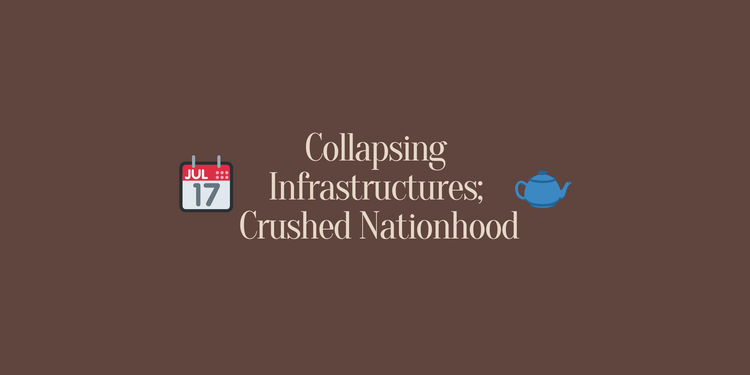
Comments ()